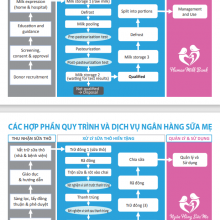Journal article
Feb 11 2020

Information Diffusion and Social Norms Are Associated with Infant and Young Child Feeding Practices in Bangladesh (Nguyen, P., 2019. The Journal of Nutrition)
Interaction within mothers’ social networks, reinforced by promoting positive social norms for appropriate behaviors, can affect IYCF practices, according to this study in Bangladesh.
Journal article
Feb 11 2020

Suboptimal infant and young child feeding practices in rural Boucle du Mouhoun, Burkina Faso: Findings from a cross-sectional population-based survey (Sarrasat S., 2019. PLOS One)
Mothers in the rural Boucle de Mouhoun Region of Burkina Faso had low levels of knowledge of IYCF and practices, according to this study: 60% of children had the minimum meal frequency, while only 18% benefited from the minimum dietary diversity and 13% received minimum acceptable diet.
Journal article
Nov 15 2019

Contribution of the Alive & Thrive-UNICEF advocacy efforts to improve infant and young child feeding policies in Southeast Asia (Michaud-Letourneau, I., 2018. Maternal & Child Nutrition)
Advocacy efforts are needed to help countries align with international frameworks when improving infant and young child feeding (IYCF) policies.
Video
Jun 04 2019
Journal article
Jun 01 2019
Integrating Maternal Infant & Young Child Nutrition (MIYCN) in Undergraduate Medical Teaching Curriculum and Service Delivery in Two States of India (P04-162-19)
Poster/Graphic
Feb 01 2019

Components of human milk bank processes and services
Human milk bank (HMB) services are an essential component of a breastfeeding-friendly health system. HMB services give at-risk infants, such as those born pre-term or low birthweight, access to the multiple benefits of breastmilk when they need it most.


